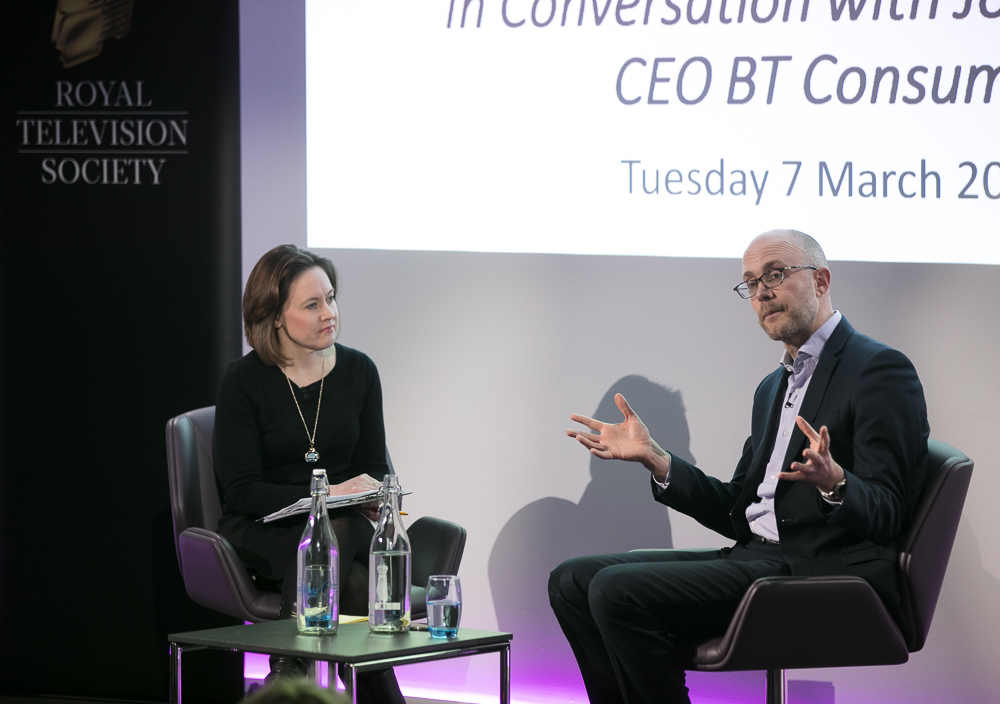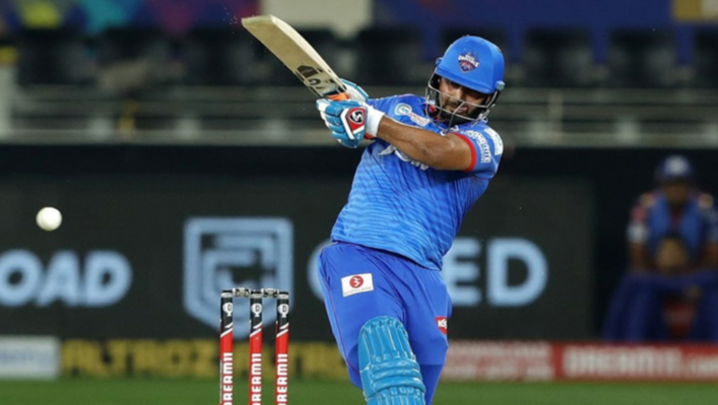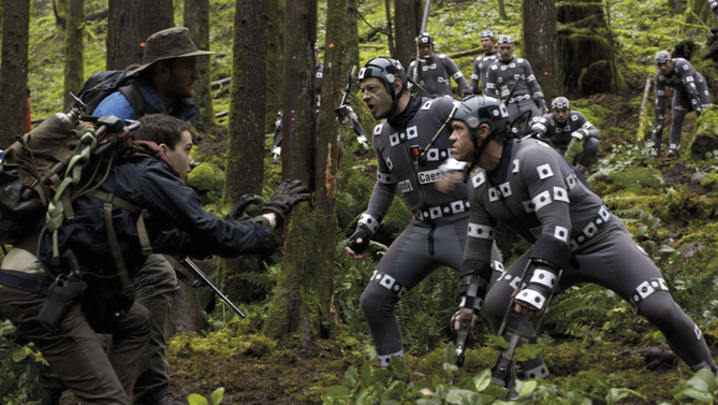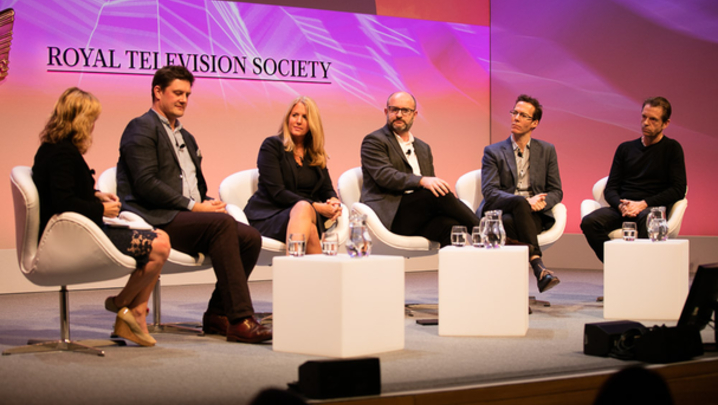BT’s John Petter explains how BT Sport has recast the national game as entertainment. Matthew Bell reports
BT Sport has brought the fun back into football – as any viewer could confirm after seeing Gary Lineker and his team of pundits cavorting around the studio when Sergi Roberto’s astonishing last-gasp goal for Barcelona cemented victory over Paris Saint-Germain in the Uefa Champions League last month.
“Sky has done a fabulous job on football,” said BT Consumer boss John Petter at an RTS early-evening event in March. “What we have been trying to do on BT Sport is to move away from the suited and booted, slightly American uber-professionalism that you have with Sky and to make BT Sport very entertaining and inclusive.”
Since its launch in August 2013, BT Sport has been widely praised, principally for its coverage of football and rugby union. The channel holds the rights to: a tranche of live Premier League and Scottish Premiership matches; the FA Cup (with the BBC); the Champions League and Europa League; various national European football leagues; and, for rugby, the English Premiership and European Rugby Champions Cup (the latter with Sky).
But are BT’s sports acquisitions running out of control? One day before the RTS event, BT extended its TV rights for the Champions League and Europa League until 2021 – but had to shoulder a 32% price hike.
Petter, who has been CEO of BT Consumer since September 2013, runs the company’s broadband, television, telephony and BT mobile services, a huge division that boasts an annual turnover of £5bn.
BT under fire on service and infrastructure

On broadband roll-out, BT Consumer CEO John Petter said: ‘The UK is, by most standards, a very connected country.… Today, [only] about 5% of the UK doesn’t have access to superfast broadband.
‘People are quite angry, and I totally understand that.… We are investing [and] the network has already been built out to about 27 million premises, but only about 6 million people have adopted superfast broadband.’
On BT’s customer service, Petter said: ‘We have had some ground to make up. I came into a business [three years ago] where a lot of the customer service had been offshored, mostly to India.…
‘We are doing three things. First,… we’re spending proper money building a… website that makes it easy to [offer good] service instead of complex. Second,… we’ve been hiring thousands of people in the last 18 months.… And, third, I’ve made a public commitment that [we’ll answer] 90% of calls in the UK, rather than overseas, by the end of spring.… The service is getting better; it has not improved enough, yet.’
He defended BT’s £1.2bn splurge on European football rights in a wide-ranging and candid conversation with Sally Bundock, who presents World Business Report on the BBC News Channel. And he denied that the cost of the football deal would lead to a rise in broadband prices.
“The broadband marketplace is incredibly competitive,” Petter said. “A lot of people have asked me, ‘Are you going to rack up the broadband prices?’. Ultimately, I can’t, because I have to compete in broadband.”
Instead, he said, there were other income streams that he could draw on to defray the cost of the rights. These included rising advertising revenue and the “pubs and clubs market, which is actually very lucrative”.
He was also adamant that BT had not overpaid for rights that no other company – Sky included – seemed interested in acquiring at that price: “I think it’s reasonable to assume that Sky was interested. I would have expected [Sky to bid] – it would have been a rational thing for it to do.”
Petter added: “We’ve paid more, but I think we’ve got a lot more for it,” noting that BT now had exclusive rights to the Champions League highlights, which will no longer be shown on ITV. He argued that “a lot of people clearly chose not to pay for BT Sport because the highlights were free”.
“If you look at sports that have only been on pay-TV, over time, they have not been nourished as a sport needs to be."
The timing of Champions League fixtures is also changing, with games kicking off at 6:00pm and 8:00pm on match nights. Currently, all games start at 7:45pm. Petter explained that this would allow the company to boost revenues it receives from licensing pubs to air matches.
A further attraction for BT Sport was that four (instead of the current three) English teams were being given guaranteed entry into the group’s competition stages.
BT Sport’s coverage of the Champions League and Europa League – a mix of pay-TV and social media – is a departure from the usual football rights model of pay-TV for live matches and free-to-air TV for highlights.
Sponsors have apparently expressed disquiet about the loss of exposure for their products on free-to-air TV now that BT holds the exclusive rights.
Petter, however, maintained that companies “can now reach a mass audience through social media”. He cited the 12 million viewers who saw the 2016 Champions League and Europa League finals on BT Sport and YouTube.
BT is currently “talking to various parties to find the right partner” to show this season’s Champions League and Europa League finals live and free on social media. Highlights of matches will also be broadcast free on social media.
“If you look at sports that have only been on pay-TV, over time, they have not been nourished as a sport needs to be,” said Petter. “We need to have a mixture of free and pay, ultimately, for sport to continue to attract new viewers. He suggested that golf and, to an extent, cricket had found it harder to “prosper” on an exclusive diet of pay-TV. By contrast, “social media gives access to younger viewers”.
Outside of the two finals, however, Champions League and Europa League games will not be shown live on social media. “Having paid £1.2bn for them, you’d be out of your mind to do that,” said Petter.
Despite BT’s social-media focus, terrestrial TV may still get a look-in on the two European club competitions. Petter said that BT would look at sublicensing deals – if the price was right: “There’s no obligation from Uefa to [sell] rights to public service broadcasters – we don’t have to and we don’t need to, because we can get to a mass audience through social media.
“[But] if there’s a great deal out there, I would [take it].”
BT limits its exposure to drama
The BT Consumer CEO discussed the company’s first steps into drama at the RTS early-evening event, but refused to be drawn on any plans for expansion.
Petter argued that ‘the business case for other content is more challenging than the business case for sport’.
Almost two years ago, BT struck a deal with AMC – the US cable network that brought iconic dramas Mad Men and Breaking Bad to TV – and has broadcast new series such as Fear the Walking Dead in the UK.
More new AMC drama is on the way, including The Son, starring Pierce Brosnan as a Texan oil tycoon, and The Terror, a historical drama executive-produced by Ridley Scott.
But Petter would not commit to an expansion of BT Vision’s drama slate: ‘I’m neither ruling in nor ruling out doing more – I’m going to be watching very closely the progress we make in the next year.’
The RTS early-evening event ‘In conversation with John Petter’ was held at the BT Tower in central London on 7 March. It was produced by Helen Scott.






